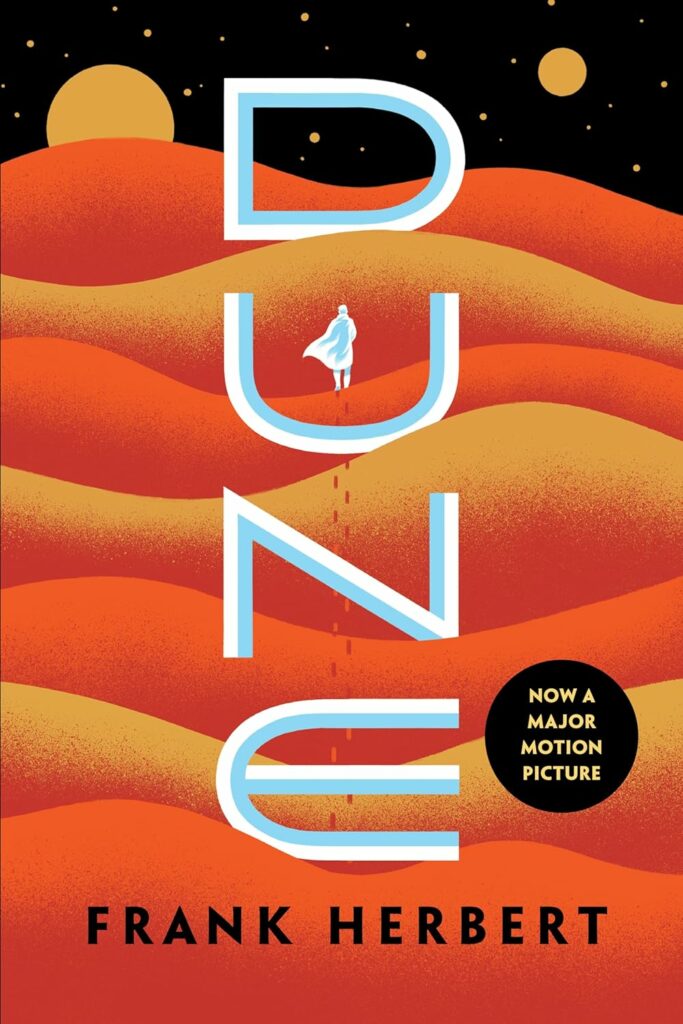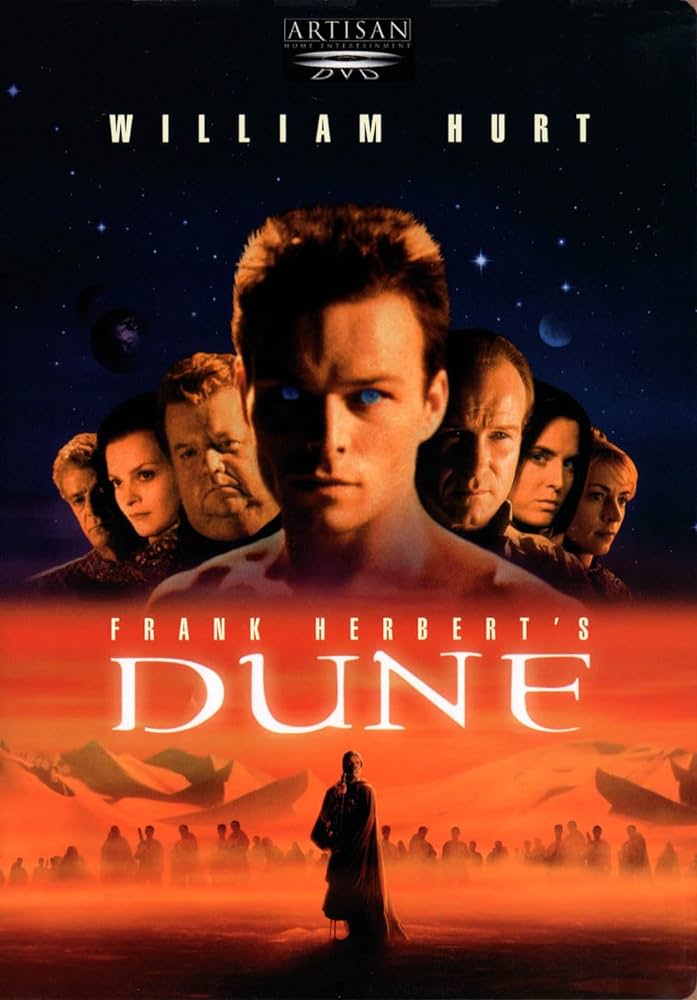
MDST3912: Adapting Media | Fall, 2024
Meets Tuesdays/Thursdays, 11:00am-12:45pm
[Note: This course is applicable toward the MDST Film Concentration]
How do we understand why and when certain texts become adapted into films? How do we understand why and how some are seen as successful, and others are not? In Fall, 2024, we will answer these questions with a focused approach — looking at one text’s repeated adaptation (or attempted adaptation) over the course of nearly six decades. In this course, we will look at the adaptation of Frank Herbert’s Dune, from the original serialized story in Analog magazine through its publication as a novel, and then toward its multiple screen adaptations, culminating with the recent film (Dune: Part Two), which stars Timothée Chalamet, Zendaya, Florence Pugh, and Austin Butler, among others.
Dune presents a number of interesting — and timely! — considerations for our study of adaptation. It initially made a huge splash as groundbreaking science-fiction novel (and, later, progenitor of a series of novels, which still continue under the control of Herbert’s son Brian). Since the 1970s, several prominent filmmakers and producers have attempted to bring it to the screen, though the initial consensus was that it was “unfilmable.” High profile filmmakers ranging from Alejandro Jodorowsky to Ridley Scott to David Lynch to Denis Villeneuve have attempted big screen adaptations with varying levels of success. The material has been resonant with generations of readers, and has been seen as an appeal to psychedelic 1960s youth counterculture, a critique of colonialism and the politics of religious movements, and a prescient commentary on ecological and climate change. Dune, despite — or perhaps because of! — its fantastical story and world, has consistently been sought out for adaptation for decades. And, as we’ll come to discover, these many approaches to adaptation can reveal quite a bit about the changing business of Hollywood as well as the shifting sands of audience preferences over the past half-century.
In this course, we will track the history of adaptations of Dune and of its subsequent book franchise, looking at several key touchstones that reveal dynamics in media history over the past sixty years. After reading the novel, we will screen multiple films and television series in the course, as well as experience excerpts of other media adaptations.


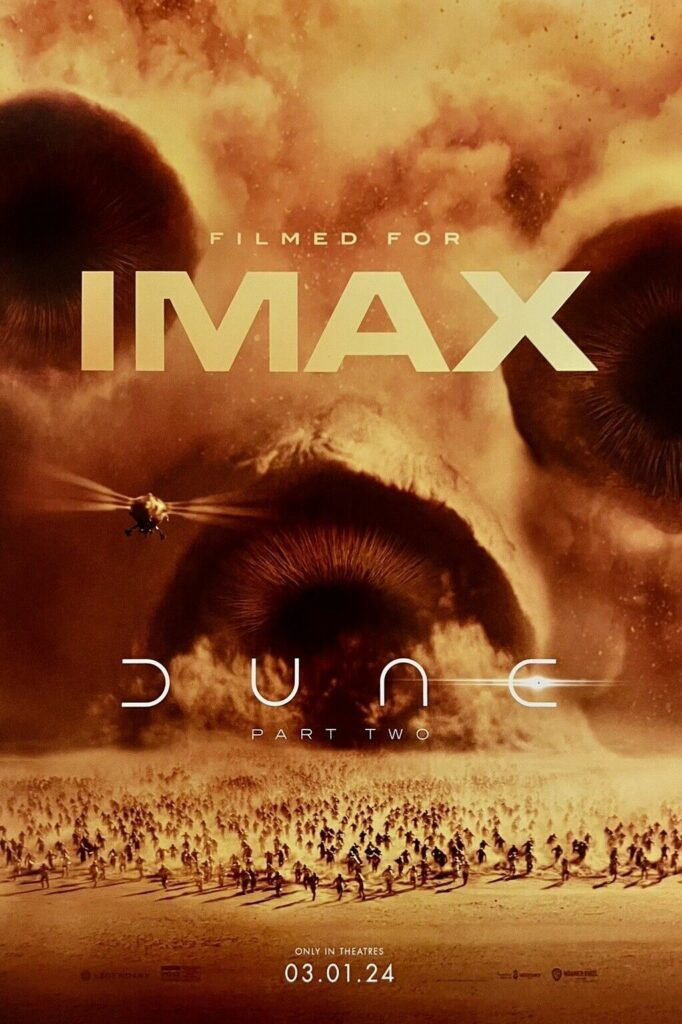
Students are encouraged to come into the semester having read the entire novel, but if one cannot, we will still begin by carefully reading and contextualizing it. We will discuss its significance in print science fiction and its inspiration to contemporary franchises ranging from Star Wars to Game of Thrones.
We will also attempt to understand the filmic, geopolitical, and environmental contexts that led to the creation of Herbert’s novel. We will read about Herbert’s journalism experiences which shaped the creation of the film and other clear inspirations, such as the 1962 film Lawrence of Arabia, directed by David Lean. We will also partake in other filmic representations of similar real-world and fictional struggles, such as The Battle of Algiers, directed by Gillo Pontecorvo.

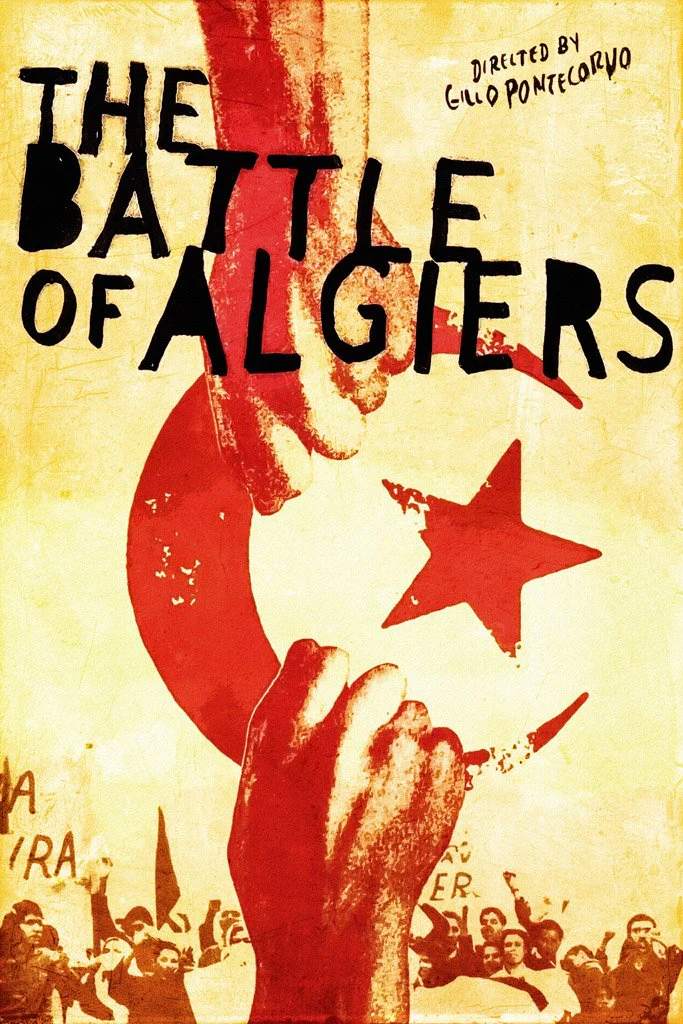
Next, we will dive right into the filmic adaptations of Dune, both the unrealized and completed ones. We will focus on Alejandro Jodorowsky’s failed attempt to create an adaptation in the 1970s, and what it reveals about the bridges between surrealist cinema, “midnight movies” and 1970s blockbuster cinema. We will go in depth with the 1984 Dune, directed by David Lynch and considered by Lynch to be his greatest failure… but was also a key factor in his later critical success. We will screen the 2000 SyFy television miniseries and discuss the screen franchise’s movement back into serialized form. We will attempt to investigate the unfinished and unrealized adaptations — from a screenplay written by Frank Herbert himself, the aborted Ridley Scott film from the late 1970s, and the Spanish fan film created in the 2000s which has been suppressed by Herbert’s estate.
Finally, we will devote several weeks to what’s made the biggest splash in the past few years: The recent blockbuster films Dune and Dune: Part Two (from 2021 and 2024, respectively), both directed by Denis Villeneuve. With these final films in the course, we will critically address the logics of the current industry from the fostering of “cinematic universes” and transmedia franchises, as seen with the upcoming Dune: Prophecy streaming series on Max:
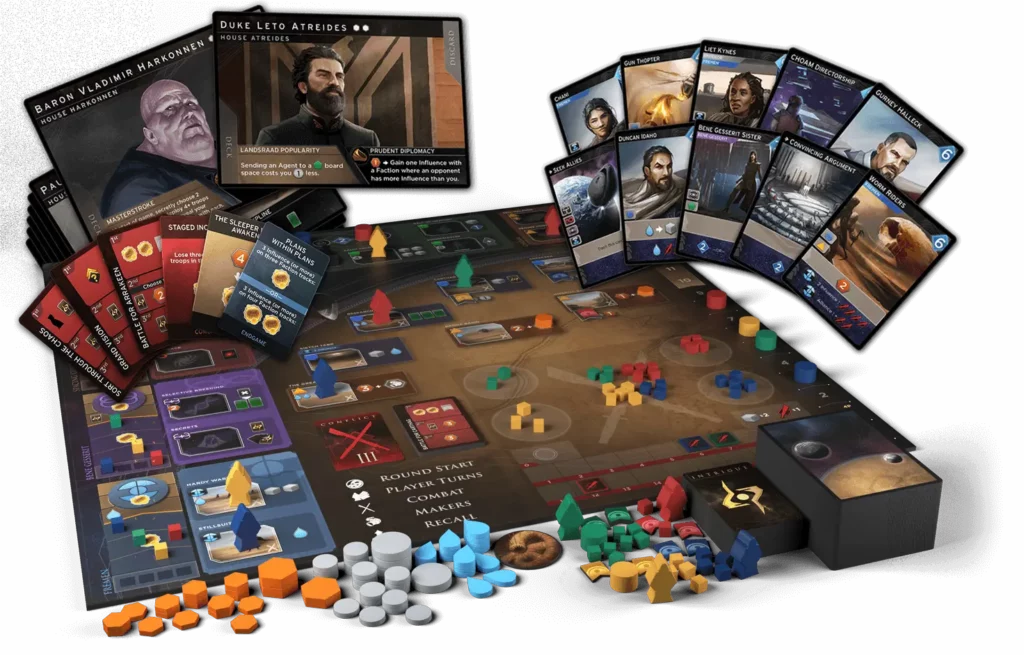
Atop all of this, we will acknowledge that adaptation is not just about texts and screens. We’ll engage with other Dune paratexts across a dizzying array of media — comics/graphic novel adaptations, audiobook/audio dramas, toys and action figures, the design of a recent LEGO™ set, fan parodies, podcasts, video games, board games/collectible card games, and, yes, even that (infamous) popcorn bucket.

Though we will look into Dune in great detail, our goals are not specific to this franchise. Throughout, we will repeatedly ask the following two, inter-related questions:
- What does a deep look at Dune tell us about how and why some stories are adapted?
- What does a deep look at Dune reveal about changes in media industries and audiences over the past six decades?
While we will use Dune as a productive and extended example throughout the term, we will repeatedly glean insights that go far beyond this franchise and will help engaged students to uncover the ways that media have been and continue to be adapted into new forms for new audiences. Our goal will be to interrogate a popular media franchise through the lens of adaptation, and, as such, we will necessarily bridge into discussions of fandom, transmedia storytelling, the business of film exhibition, serialization in contemporary cinema, media tie-ins and paratexts, and more.
This course will be entirely specifications graded, with no letter grades nor numeric grading for any assignment. There will also be no exams in this course. Class sessions will be centered around seminar discussions, connecting one’s first-hand experience with each of these texts/adaptations with insights drawn from relevant Media Studies scholarship. Several short papers (no longer than two pages each) will be assigned, with multiple opportunities to write on adaptation and these media throughout the term.
All students interested in earning an A for a final course grade will be required to meet expectations on a term project where each student will apply the approaches to adaptation and media history we play with in this course to one of the many other source texts which have had at least three attempts to bring it to a screened form. These will be up to the student to determine, pitch, and then develop, but could include properties such as The Lord of the Rings, Little Women, Pride and Prejudice, Frankenstein, Hamlet, Les Miserables, and so on.
No previous experience with Dune or its adaptations is expected, though all students will be expected to dig deeply into the source novel and multiple screen versions over the course of the term. All screenings will be provided for students via Canvas. The only required text to purchase will be a physical copy of Dune by Frank Herbert, which we will collaboratively annotate over the course of the term. All additional course readings and videos will be provided as PDFs or links via the course Canvas site.
Please feel free to reach out if you have any questions by emailing Dr. Duncan at sean [dot] duncan [at] virginia [dot] edu.

